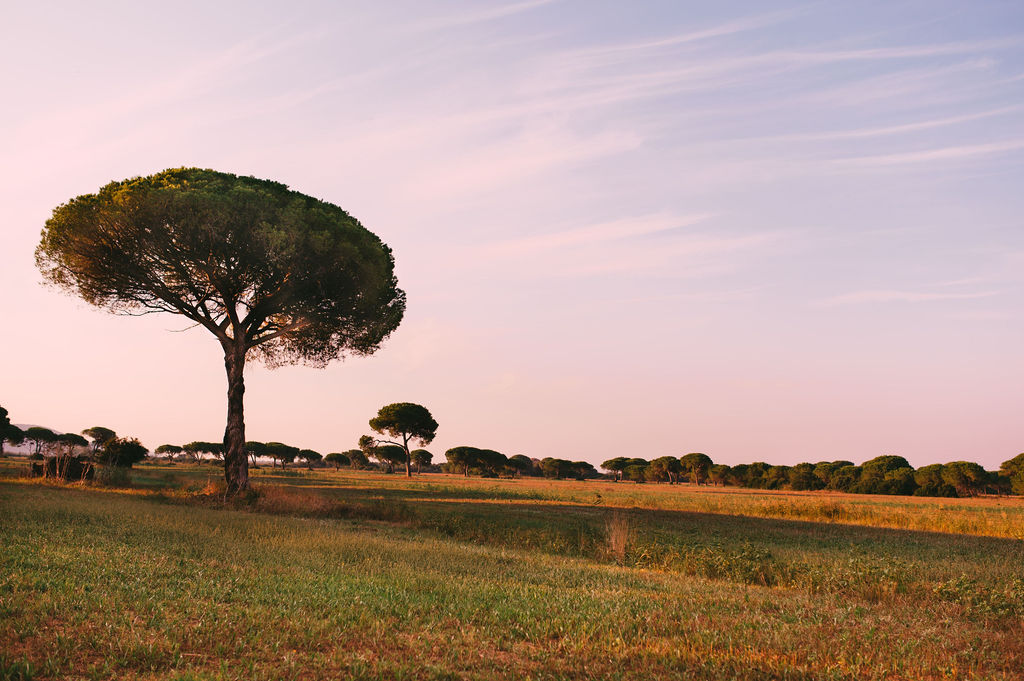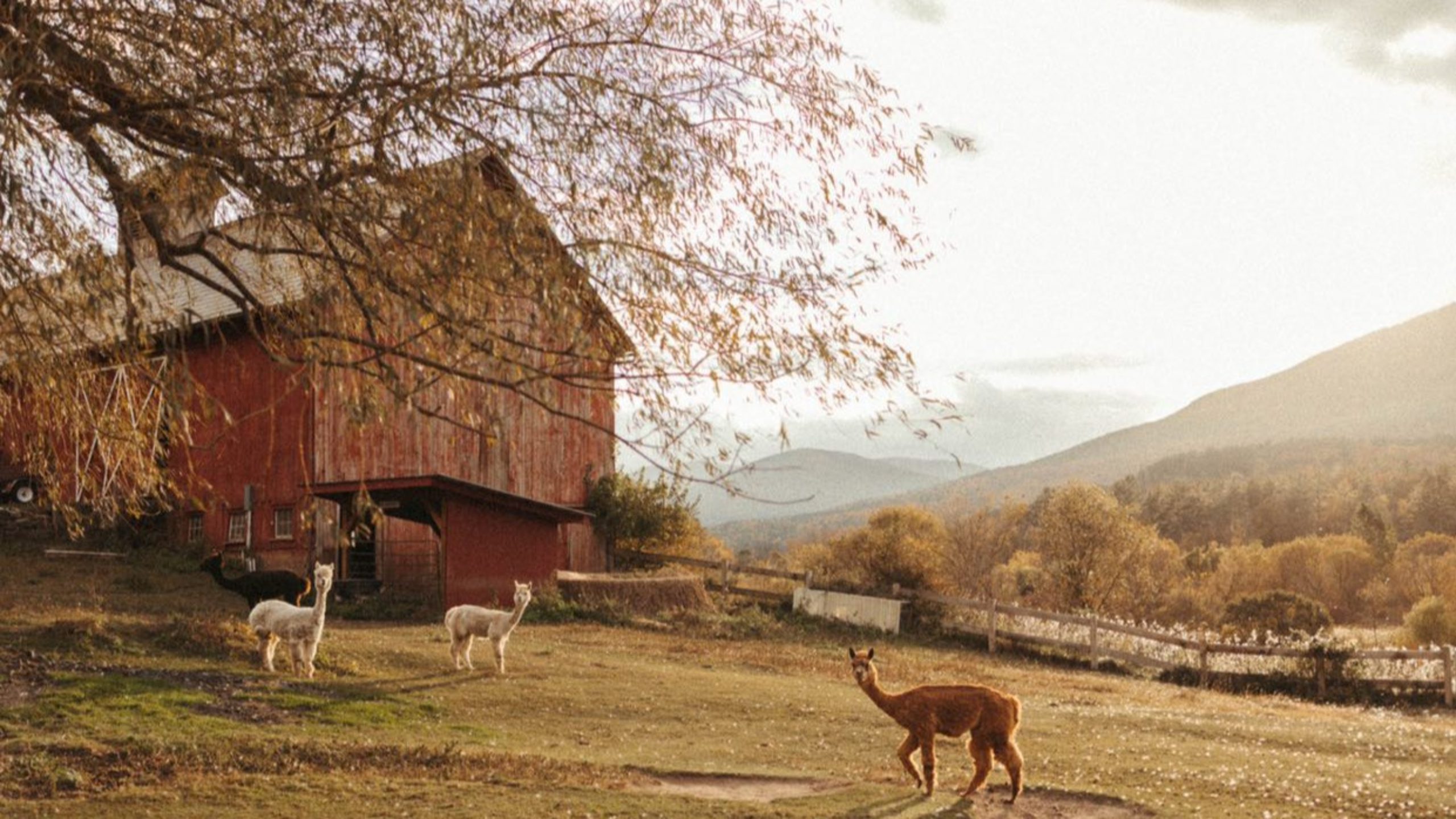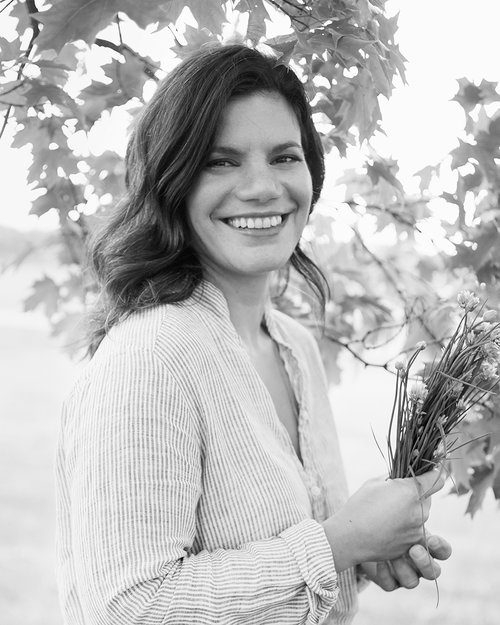“’Why do you think so far into the future? A coconut could hit you on the head at any moment!’ That’s what a Permaculture team member said to me when we first started talking about the long term planning and management of the farm.” Amanda Harris laughs. “And of course they are right! But over time we’ve taken a mutual journey of re-valuing the local tree, food and medicinal species on their land, and in the local community — the ecology at the center of our hospitality.”
At Playa Viva, a unique eco-luxury destination, they joke that they bought an abandoned farm and built a hotel. Now the award-winning, all female-managed hotel is five years into the lifelong journey of restoring various ecosystems on their land and regeneratively managing a productive farm – and much more. Located at the base of the Sierra Madre mountain range, where the mouth of the river meets the Pacific Ocean, Playa Viva employs more than 100 people from the four communities that make up the Juluchuca watershed on Mexico’s west coast. The hotel’s permaculture farm acts as an engine for five locally-run microbusinesses, and a laboratory for members of the farm team. Fifteen men and women have been trained by Amanda, whose position is Permaculture Manager, and work as a leadership team to restore natural abundance and reignite an appreciation for their collective ecosystem. Their efforts include a mangrove restoration project, the passive and regenerative management of a 80 hectare (200-acre) nature reserve, estuary and lagoon stabilization using upstream keyline water management techniques, a thriving plant nursery and permaculture consulting business, as well as creating a resilient foodshed that serves multiple communities with nutrient-dense and local products. Their ventures also serve as curriculum-rich outdoor classrooms for many visitors, including hotel guests, government officials, university students, and local kindergarteners and parents.
Playa Viva was designed applying regenerative principles and practices. This living system framework touches every branch of their venture: community development and planning, architecture and the built environment, regenerative agriculture, ecological restoration and restorative land development, and eco-destination development. The work demonstrates how tourism has a unique ability to protect and engage vulnerable communities and ecologies while reducing poverty. This is made transparent (in two languages) to guests, illuminating how regenerative principles play out when grounded in place-based economies, cultures, and rituals. On the basis of their model, the owner of Playa Viva founded a group of like-minded hotels under the Regenerative Travel™ brand.
You’ll find many repeat guests at Playa Viva, who, over fresh equatorial cuisine and good cocktails, may also end up talking about big environmental issues. Whether guests are farming-curious or old hat, the invitation at Playa Viva is to allow yourself to be impressed and surprised. The results are transformative. Ecologically-built structures means many rooms are basically outside, providing guests with a sensory, auditory nature-based immersion, which is not for everyone – at first. Ironically, the farm tour tends to awaken the luxury part of eco-luxury. “It’s a bell curve,” says Amanda. “Certain nights, it sounds like the waves of the ocean are in your room; and just when guests feel a bit intimidated by nature, they come exploring the larger landscape and return with an intimate knowledge and appreciation for mother nature’s strength and ability. They relax into the healing that exists here on our land, with our food forests, and hugged up next to the ocean.” The back-of-a-truck customizable tour drives guests through four different ecosystems, stopping alongside estuary edges to see crocodiles, endemic birds and mother turtles in their natural habitat, and to snack on native fruit trees dotting the open-air drive out to the farm. Talk about place – this story of place includes tales of who was on the land when the now-isolated 200-year old Ceiba trees were first planted. Native cacti and hand carved artifacts found in the ground from a millennium ago, tell the story of what was before and what can be again, figuratively and ecologically.
“The very same folks who joked about falling coconuts when we started, now take pride in choosing where to plant the next generation of Ceiba trees. They comment that they want their grandchildren to know the abundance they grew up with; and they know the importance of co-evolving with the ecosystem.”
After a farm tour many people ask what they can do to continue their learning. The two answers are simple: first, find someone in your hometown doing similar work; support them, too; and second, buy something at the hotel boutique. The upsell is an honest one that ties everything together: nutrient-dense food and medicine is the heart of the farm work at Playa Viva, and the five plant-medicine products for sale support a type of beautiful phytopharmaceutical knowledge that is quickly disappearing in other parts of Mexico, and the world. The products on offer are based on feedback from guests’ common health issues during travel; the team develops products based on native and local plant knowledge to make the guest experience more comfortable. Turmeric powder grown in rich black soil on the farm, hand dried and hand ground, sits bright and orange on the shelves, waiting to support personal health regimes or inflammatory ailments. Herbal tea blends offer aid in sleeping, indigestion, or headaches. Plant medicines symbolize the community’s health, abundance and prosperity, which naturally wants to be shared. The financial reciprocity allows guests to participate in regenerative values as applied to economic products.
Psychologists tell us that experiences of awe, often found in nature, are what they call self-transcendent: they shift our attention away from ourselves, make us feel like we are part of something greater, change our perception of time, and even make us more generous toward others. An experience that expands our day-to-day provokes us to soften the mental constructs that we use to understand the world, and reconsider what is possible. This mindset shift towards curiosity is a cornerstone to problem solving, and arguably, to creating new models for our interrelated ecological and community futures. Without the spirit of caring that comes from a deep connection to place, we will not make, let alone maintain, the changes needed for future generations. We need to practice different modes of thinking.
Agritourism, or farmstays, allow guests to stay directly on a farm and learn about farming practices that care for the environment, the people who tend it, and for the health of everyone who consumes the food. While farmstays have always offered the restorative promise of wellness and creativity through nature; what has changed is just how meaningful nature-connection has become. Beyond individual recuperation, agritourism now has a bigger potential: to provide insights and keys into planetary well-being. The pandemic paused the flywheels of travel and tourism and showcased the possibility of more healthy and sustainable forms of travel and recreation, ones that collaborate with nature rather than extract from it. Rural travel destinations are increasingly popular, especially given more flexible work lives. Innovative tourism entrepreneurs see the opportunity to harness these trends towards an acceleration of travel that adapts the ecological challenges and meets the new expectations of savvy travelers. Agritourism pioneers worldwide are tapping into this movement by using their farms as platforms for education, collective experiments, and wonder-full experiences. A new regenerative hospitality is blossoming.
 Tenuta San Carlo at sunset.
Tenuta San Carlo at sunset. Joining in this exploration is Sagra, a hospitality company that partners with regenerative farmers and land managers to create farmstay experiences. Hill Farm, their newest location in Vermont’s Equinox Valley, is a stunning and idyllic gem of the New England landscape vernacular. Morning mists clear to reveal emerald green hills; Alpacas poke their heads out of red barns. Beyond sheer aesthetic appeal, the 200-year-old Vermont dairy and inn is undergoing an important revival.
Sagra aims to create moments that connect guests to the farm, through mind and body. At check-in, guests receive a recently harvested “taste of the farm,” and learn about the land they have arrived on. In each room, research from leading holistic management institutes has been thoughtfully repurposed in a guidebook that details organic practices and why they matter. Throughout a stay, many guest touchpoints, such as sensory farm tours or culinary activities, offer a deeper understanding of the environmental and economic impacts of their food. “The real-time transformative moments occur when someone realizes they can harvest a pole bean or a tomato out of the ground or greenhouse and just eat it straight. It resets a whole conditioned sense of health and safety around food, and the flavor profile is incredibly different from what they experience in produce from the grocery store,” shares Kathryn Arffa, Sagra’s brand director.
Everything comes together around the table over dinner where chefs cook farm-fresh meals in a post and beam barn, highlighting seasonal ingredients sourced directly from the field or from neighboring farms. Each Sagra location is a supportive hub for nested concentric circles of local food producers, makers, chefs, and artisans, united by work that gears the food and hospitality sector towards more justice, joy and dignity. David Rust, co-founder, is emphatic about the bigger mission: “We offer the chance to see how humans and the environment are not separate, how we are in fact all a part of nature. We often forget this, but through intentional experiences on places like farms, we see the links between our daily decisions and the environment around us. One by one, these behavior change decisions contribute to system change. This form of travel is awareness building.”
Sagra, whose company name means ‘local harvest festival’ in Italian, is among those working to put American agritourism on the map. Like many peers, much of their inspiration is gathered from Italy, credited as the birthplace of agriturismo. In Italy, some of the country’s best hospitality takes place on farms; each region’s unique gastronomic traditions lend themselves to stunning and sought-after tourism activities. Since agritourism was officially recognized in 1985, small, agriculturally productive land owners in Italy have set the international standard for rural tourism worldwide, opening their farm doors and their kitchens to tourists who want less to talk about sustainability, and more to know how it feels, smells, and tastes.
 Llamas grazing at Hill Farm, Vermont.
Llamas grazing at Hill Farm, Vermont. In Tuscany, while unsustainable overtourism throngs closeby cities, Ariane Lotti looks at her rice fields and thinks about water. As farmer and proprietor, Ariane manages the formidable Tenuta San Carlo, a property that consists of four hundred hectares (a thousand acres) of land and an agriturismo bordered by the sea and the Maremma Regional Park. It is a stark and gorgeous landscape, edged by allées of umbrella pine trees, dotted with majestically horned beige cattle, wild and expansive against a sparkling coastline.
The land was shaped by decisions made by Ariane’s direct ancestors; her grandparents started growing rice in the 1960’s in the same fields she does today, albeit very differently. Her strongly inherited sense of land stewardship holds, but the farm’s focus has changed from a more simple give and take relationship with nature’s cycles to strategizing how humans can live within long-term climate variability and extremes, underscored by the summer of 2022, which saw new heat records in Italy. “It’s no longer enough to make it ‘sustainable’ or to fix the mistakes of the past. Now we have to work with the challenges of the present and try to mitigate what is potentially a devastating future — in all of our systems and processes.”
Tenuta San Carlo grows organic diversified grains at a large scale, both for commodity markets and for their own private label. The strategic decision to grow rice was a tough one because, although becoming First Tuscan fully organic rice production made economic sense, rice is a water intensive crop. To balance this choice, the farm undertook significant increases in climate adaptation and mitigation measures within its already regenerative farming framework, such as adjusting the crop plan to lengthen rotations, and focusing on fall and winter crops because enough rain has become unlikely in the spring. The property is also launching a timely photovoltaic solar system in the face of the European energy crisis.
Traditionally host to families enjoying child-friendly, seaside summer holidays, the demographic of guests at Tenuta San Carlo is moving towards tourists and groups who come for the knowledge as well as the food. Tenuta San Carlo sees their agriturismo guests as allies, and the environmental challenges as an opportunity for opening and dialogue. There is (deliberately) no air conditioning at Tenuta San Carlo, but there are birds, and animals and biodiversity, and increasingly this ‘off the beaten path’ vibe is exactly what TSC’s guests are looking for. “What used to be turn-offs for people are now incentives. As the world becomes a harder place to live in, we are forced to make choices of how we spend our time, even on holiday,” Ariane acknowledges. The farm is a living laboratory that touches across many disciplines. University groups looking at soil-based solutions to climate change can have a physical, actionable experience of their studies of carbon, greenhouse gas emissions, or oil nutrient cycles. Yoga students or writers coming to cultivate inner perspective enjoy mental space and heart space in the property’s grandeur. Even those not deliberately interested in food systems leave with a connection to nature.
Applying the adaptive tack also to hospitality management, the property has heightened marketing for the shoulder seasons, when so much natural beauty exists – and the risotto is just as good. In Italy, the psyche and the stomach are related, and the conviviality of the Italian table acts as a consistently uplifting climate therapist, gathering people around life-enriching meals that make the bigger picture seem surmountable.
The coronavirus has spotlighted the delicate web of our interdependencies, affirmed our need for belonging, and increased our cries for community. The role of farm-based tourism is to build these bridges, enliven our senses, and (re)generate our capabilities to restore right relationship between humanity and the Earth within our rapidly changing reality. The tourism sector is waking up to its impact, shifting from value-extraction to additive experiences that promote positive livelihoods and raise levels of consciousness.
Luckily, the mind is not the only instrument of understanding; we also learn through our bodies, our nervous system, our senses. On-farm hospitality experiences ground big concepts, engaging people in experiential solutions that can help them to see relevance within their own lives. Linking transformative hospitality with regenerative farming creates a mirror between our inner worlds, which crave nourishment and cultivation, and the outer landscapes that shape and feed us. Farmstays may not solve the deep – and complex – cultural, ecological and relational changes needed to realize our collective healing, but they can help provide the conditions upon which such transformation is possible. Whether in Mexico, Vermont or Italy, we can imagine what being a better traveler, a better host or a better guest means. We can ask ourselves: what creative possibilities are waiting to emerge when like-minded and like-hearted individuals come together around the table? Nature offers the answers we know we need; we just need more, and more equitable, ways to access them.



